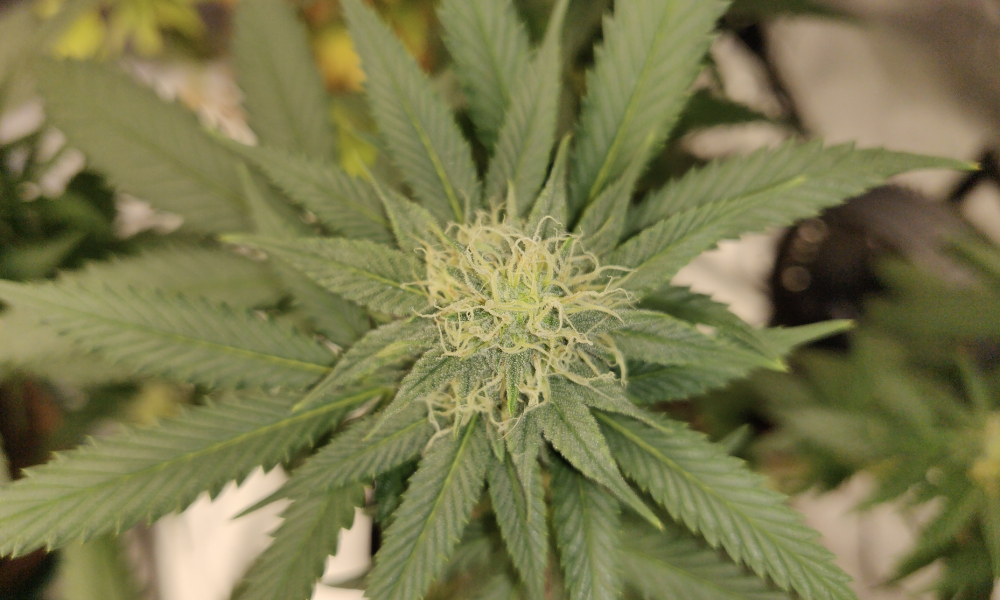A bicameral congressional conference committee tasked with settling differences on a large-scale manufacturing bill kicked off negotiations on Thursday—and several appointed conferees from the House and Senate took the opportunity to push for marijuana banking reform as part of the package.
At least five members made a point to raise the cannabis issue as part of the discussion on the AMERICA Competes Act. That includes the conference committee co-chair, Sen. Maria Cantwell (D-WA).
Conferees emphasized the need to give state-legal marijuana businesses access to traditional financial services as a public safety imperative that could also bolster the economy.
“This Congress has a chance to deal with several longstanding policy challenges,” Rep. Earl Blumenauer (D-OR) said. That includes “providing cannabis businesses with access to banking.”
“It’s critical that the SAFE Banking Act be retained,” the congressman said, adding that there were three people killed in the chairwoman’s home state of Washington in the span of one week in incidents targeting marijuana businesses.
“The SAFE Banking Act is an issue of public and worker safety,” he said. “It’s passed the House six times. I hope we work together to retain it it because it is a matter of life and death.”
Rep. Maxine Waters (D-CA), who chairs the House Financial Services Committee and previously listed marijuana banking as a legislative priority ahead of the conference, said that “bipartisan House support for the SAFE Banking Act is evident in its inclusion in America COMPETES, and I urge my fellow conferees to support its inclusion in the final conference report.”
While the House included the marijuana banking proposal in its version of the AMERICA Competes Act, the language was stripped in the Senate. Still, nearly a quarter of all senators sent a bipartisan letter on Thursday urging that cannabis banking be included in the final bill—and there are certain champions of the issue who have been appointed to the conference to negotiate the bill.
Sen. John Hickenlooper (D-CO), for his part, said on Thursday that the manufacturing legislation represents “a rare opportunity to reinvigorate our economy and cut the red tape that has been holding back American innovation.”
It could do that, in part, by “modernizing our banking laws so that the cannabis industry isn’t operating in the all-cash darkness,” the senator said.
The third-highest-ranking Democratic member in the Senate, Sen. Patty Murray (D-WA), has taken special interest in the issue, describing marijuana banking reform as a priority as an appointed member on the bicameral conference committee.
She said on Thursday that she hopes “we can all come to an agreement to keep SAFE Banking in our final bill so that cannabis stores in states like mine do not have to operate entirely in cash.”
“This is really a straightforward bipartisan solution to a real public safety threat that I strongly believe that we should all be able to agree on,” she said.
Cantwell, the chair of the conference committee, recognized that “several members have mentioned the SAFE Banking Act as part of their testimony today, so we appreciate that very much.”
Despite continually passing though the House, the Senate has been reluctant to advance the measure under Democratic and Republican control. Current Senate leadership has insisted on passing comprehensive legalization legislation first before the cannabis banking bill.
A top aide for Senate Majority Leader Chuck Schumer (D-NY), who is working to finalize his own legalization bill, recently tempered expectations about the prospects of moving marijuana banking through the America COMPETES Act.
The standalone Senate version of the SAFE Banking Act currently has 42 cosponsors, including nine Republicans.
That reluctance on the Senate side was also the subject of a letter that SAFE Banking Act sponsor Rep. Ed Perlmutter (D-CO) sent to leadership last month.
In a previous statement to Marijuana Moment, Perlmutter pointed out that “more than two-thirds of the conferees have already voted for or cosponsored the SAFE Banking Act.”
The congressman has even made a point to talk about enacting the reform legislation during committee hearings on ostensibly unrelated or wider-ranging legislation, like at a recent House Rules Committee hearing.
Despite recently saying that he’s “confident” that the Senate will take up his bill this session, Perlmutter recognized that while he’s supportive of revisions related to criminal justice reform, taxation, research and other issues, he knows that “as we expand this thing, then we start losing votes, particularly Republican votes and we got enough votes in the Senate to do it” as is.
Meanwhile, the governor, attorney general and other top officials in Washington State sent a letter to congressional leaders last week, again emphasizing the urgent need to pass marijuana banking reform as a public safety imperative.
Separately, Washington State officials also recently held a virtual roundtable to address the spate of deadly robberies targeting marijuana retailers, with regulators reiterating their call for a federal policy change and discussing steps the state can take on its own while Congress fails to act.
Washington State’s treasurer has been especially vocal about the need for congressional reform, and he wrote in a recent letter to his colleagues in other states that it’s “just not safe to have this financial volume in cash.”
He made similar remarks at a recent conference of the National Association of State Treasurers (NAST). And Colorado Treasurer Dave Young echoed that sentiment in a recent interview with Marijuana Moment.
In the absence of congressional action, more states are moving to enact marijuana banking reform policies on their own. For example, Pennsylvania House lawmakers filed a companion bill to a Senate-passed measure late last month that would provide banking protections and tax relief for marijuana businesses.
Meanwhile, the number of banks that report working with marijuana businesses ticked up again near the end of 2021, according to recently released federal data.
It’s not clear if the increase is related to congressional moves to pass a bipartisan cannabis banking reform bill, but the figures from the Financial Crimes Enforcement Network (FinCEN) signal that financial institutions continue to feel more comfortable servicing businesses in state-legal markets.
Some Republicans are scratching their heads about how Democrats have so far failed to pass the modest banking reform with majorities in both chambers and control of the White House, too. For example, Rep. Rand Paul (R-KY) criticized his Democratic colleagues over the issue in December.
South Carolina Medical Marijuana Legalization Bill Suffers Another Procedural Defeat
Photo courtesy of Mike Latimer.
Medical Disclaimer:
The information provided in these blog posts is intended for general informational and educational purposes only. It is not a substitute for professional medical advice, diagnosis, or treatment. Always seek the advice of your physician or other qualified healthcare provider with any questions you may have regarding a medical condition. The use of any information provided in these blog posts is solely at your own risk. The authors and the website do not recommend or endorse any specific products, treatments, or procedures mentioned. Reliance on any information in these blog posts is solely at your own discretion.







